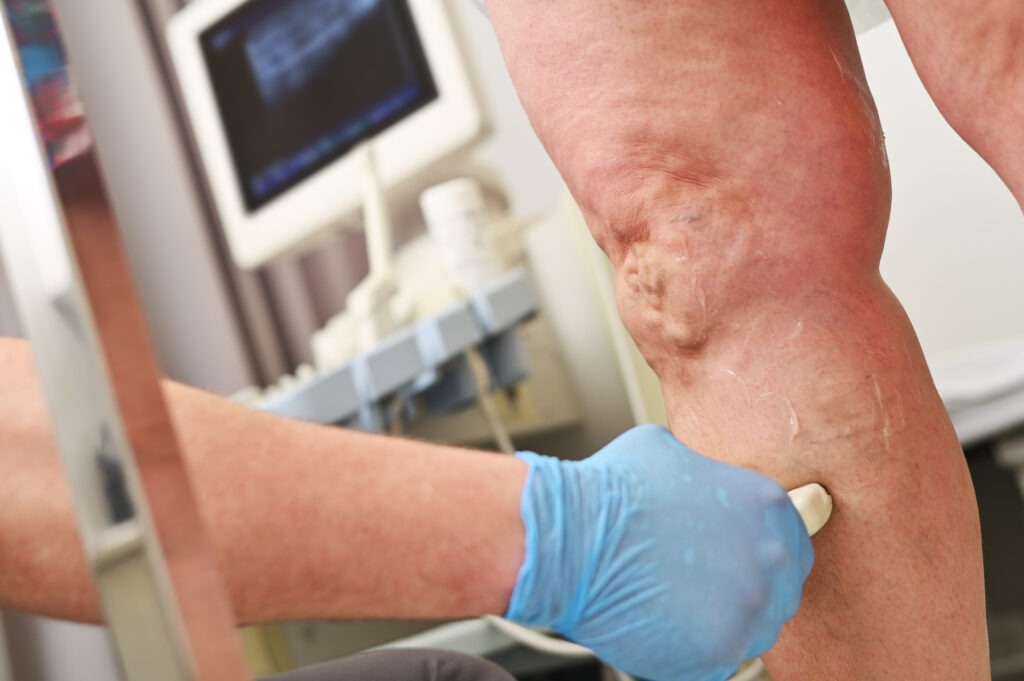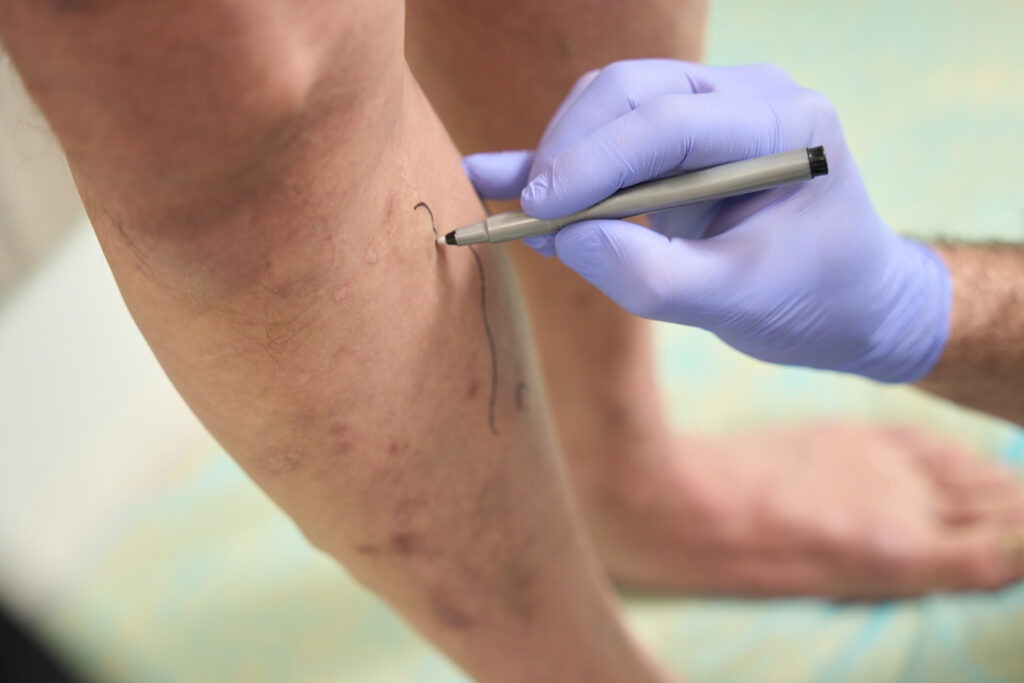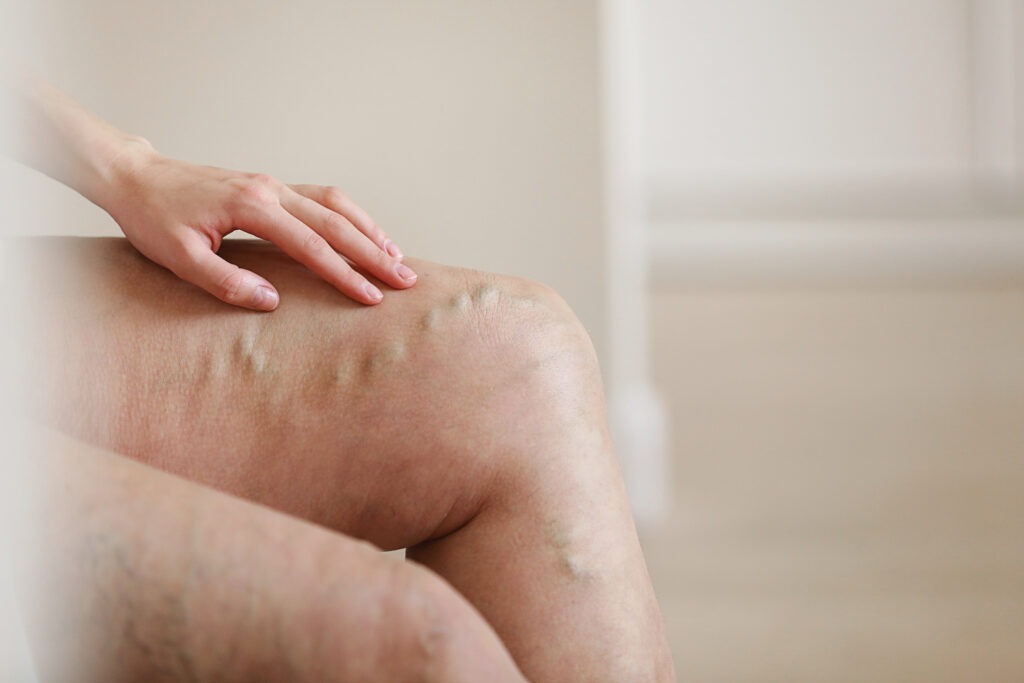Understanding Venous Insufficiency in Obesity: What You Need to Know
Living with obesity can come with a range of health challenges, one of which is venous insufficiency. This condition, affecting blood flow in the veins of your legs, is more prevalent among those with higher body mass index (BMI). Understanding how venous insufficiency impacts health and learning about its management options can be empowering. In this blog post, we will explore the relationship between venous insufficiency and obesity, outline the symptoms, discuss treatment options, and offer some guidance on when to seek medical advice.
What is Venous Insufficiency?
Venous insufficiency is a condition where the veins in your legs struggle to send blood back to your heart, resulting in blood pooling in the veins. This is often due to weakened or damaged valves within the veins that help keep blood moving in the right direction. For patients with obesity, the added pressure on these veins makes them more susceptible to developing this condition.
The primary functions of veins are to return deoxygenated blood back to the heart. When this process is disrupted, it can lead to a series of symptoms that affect daily life. Recognizing these symptoms early on is crucial for seeking appropriate treatment and preventing further complications.

Symptoms of Venous Insufficiency
Symptoms of venous insufficiency can vary from mild discomfort to more severe issues. Common signs include:
- Swelling in the legs or ankles: This is often the first noticeable symptom, especially after standing or sitting for long periods.
- Pain or cramping in the legs: This can occur after prolonged periods of inactivity and may be relieved by walking or elevating the legs.
- Varicose veins: These are enlarged, twisted veins visible under the skin, often appearing blue or dark purple.
It’s important for those living with obesity to monitor these symptoms carefully. Ignoring them can lead to more serious conditions, such as deep vein thrombosis (DVT), which is a potentially life-threatening condition involving blood clots.
The Link Between Obesity and Venous Insufficiency
Obesity places increased pressure on the veins in the lower extremities, exacerbating the risk of venous insufficiency. The added weight causes the veins to work harder to circulate blood, which can weaken vein walls and valves over time. This strain can lead to chronic venous insufficiency, a long-term condition that requires ongoing care and management.
Understanding this link is vital for both patients and healthcare providers. It highlights the importance of addressing obesity as a means of preventing or managing venous insufficiency. Lifestyle changes, such as adopting a healthier diet and incorporating regular exercise, can be beneficial steps in reducing weight and alleviating vein-related symptoms

Common Misdiagnoses and Risks
Many individuals with venous insufficiency are mistakenly diagnosed with other conditions, such as congestive heart failure, due to overlapping symptoms like leg swelling. It’s crucial for healthcare providers to consider venous insufficiency, especially in patients with obesity who exhibit these symptoms, despite negative cardiac workups.
Misdiagnosis can lead to unnecessary treatments, such as long-term use of diuretics, which may not address the underlying issue. Mismanagement of venous insufficiency can result in skin changes, open sores, and an increased risk of blood clots, all of which can significantly impact quality of life.
Challenges in Treating Patients with Higher BMI
Patients with higher BMIs often face additional challenges when seeking treatment for venous insufficiency. Some vein specialists may hesitate to treat these patients due to perceived difficulties, such as accessing deeper veins or the increased technical complexity of procedures.
However, it’s essential to understand that treatment is both possible and effective for individuals of all sizes. Partnering with experienced healthcare providers who specialize in treating patients with obesity can make a significant difference in achieving positive outcomes.

Treatment Options for Venous Insufficiency
Several treatment options are available for managing venous insufficiency, ranging from lifestyle modifications to minimally invasive office-based procedures:
- Proper Diagnosis: A specialized ultrasound, known as a venous duplex ultrasound, is essential for diagnosing venous insufficiency. This test specifically looks for venous reflux in the legs, helping to identify the exact locations of malfunctioning veins.
- Compression Therapy: Wearing compression stockings can help improve blood flow and reduce swelling, providing symptom relief.
- Office-Based Procedures: For more advanced cases, minimally invasive procedures are available to treat venous insufficiency, offering faster recovery times and fewer complications compared to traditional surgery. These include:
- Radiofrequency Ablation (RFA): This procedure uses heat generated by radiofrequency energy to close off the malfunctioning veins, rerouting blood flow to healthier veins.
- VenaSeal: A medical adhesive is used to seal the problematic vein, preventing blood flow through it and allowing the body to naturally reroute blood to healthier veins.
- Varithena: A foam medication is injected into the affected vein, causing it to collapse and close, which leads to improved blood flow through other healthy veins.
Each patient’s treatment plan should be tailored to their specific needs and health conditions. Collaborating with a specialist experienced in treating venous insufficiency, especially in bariatric patients, is key to developing an effective and individualized approach.
Beltline Health's Expertise in Venous Insufficiency
At the Vein Center at Beltline Health, we have over 17 years of experience in treating bariatric patients with venous insufficiency. Our expert team is dedicated to providing individualized care for patients of all sizes, ensuring they receive the best possible treatment and support.
Our commitment is to offer accessible healthcare that addresses the unique challenges faced by those with obesity. We believe that everyone deserves access to appropriate care, regardless of body size, and we strive to provide compassionate, comprehensive treatment for our patients.
When to Seek Medical Advice
If you suspect you have symptoms of venous insufficiency and haven’t received conclusive answers, it might be time to consult a specialist. Key indicators include persistent swelling, pain, or the appearance of varicose veins that do not improve with home care.
Timely intervention can prevent complications and improve your quality of life. At Beltline Health, we offer consultations to evaluate your symptoms and develop a treatment plan tailored to your needs.
Key Takeaways
Venous insufficiency is a common condition in patients with obesity, characterized by impaired blood flow in the leg veins. Symptoms include leg swelling, pain, and varicose veins. Understanding and addressing this condition is vital for improving overall health and well-being.
For those experiencing symptoms, seeking a professional evaluation is crucial. Organizations like Beltline Health offer specialized care for patients with obesity, ensuring that treatment is both effective and compassionate.
By taking proactive steps towards managing venous insufficiency, patients can enjoy a higher quality of life, free from the discomfort and complications associated with this condition. For more information or to schedule an appointment with one of our specialists, fill out this form or call us at 470-419-4380.




